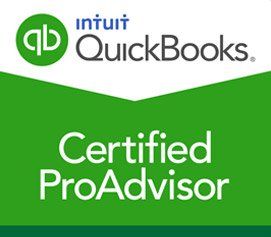Business Tax 101
With the ratification of the US Constitution, Benjamin Franklin famously said, “In this world, nothing is certain except death and taxes.” It is as true now as it was then! Both are unpleasant realities of life. As a business owner, you’re very familiar with Uncle Sam, the IRS, and the business tax rates you have to pay. You want to give your customers a great service, earn great profits, and keep as many of those profits out of the hands of the tax man!

What is Business Tax?
When it comes to business tax, the taxes you pay and the way which you pay them all depend on the set up of your business. Because each business tackles the problem of tax season in different ways, there is no “one size fits all” approach to paying business taxes. However, there are still three generally agreed upon types of business taxes.
Income Taxes are the first type of business tax. They are also one of the most simple to understand. All businesses must file an annual income tax return to the IRS. C corporations pay income tax at the corporate rate, while all other businesses are taxed at the individual rate. Those businesses are considered to be Pass-Through Entities. More on this soon.
Estimated Taxes are the next most common type of business tax. With the rise of “hustle culture,” the amount of people who fill out these taxes has grown. These include freelancers, contractors, and small business owners who expect to owe at least $1,000 in taxes by the end of the tax year. They will need to estimate how much they will owe the IRS and pay it in quarterly taxes. Those who fail to do so, or those who simply don’t pay enough- will be hit with penalties and interest fees.
Employment Taxes are the final type of business tax. Even the self-employed must contribute to Social Security and Medicare through taxes. You must pay self-employment taxes if your net earnings are $400 or more. If you work for a religious organization and make more than $108 in wages, you must also pay these taxes. This tax does not apply to ministers or members of the religious order, however (such as nuns).
Self-employed people who have their own employees must also pay employment taxes:
- Social Security and Medicare taxes
- Federal Income Tax Withholdings tax
- Federal Unemployment (FUTA) tax
This simple overview has not even gone over “sin taxes,” which tax anything from selling alcohol to purchasing heavy-duty trucks. Because business taxes can be confusing, consider hiring a tax professional. YokeTax will match you with a professional with 20 years of experience and get your taxes done within three days. Book a free one hour consultation now.
What is the Business Tax Rate for 2020?
The business tax rate which is paid depends on the type of business and how it is set up. C Corporations and Pass Through Entities are the primary choices businesses choose to pay their taxes.
C Corporations
C Corporations have an income tax rate of 21% as of March 2021. What makes C Corporations notable is that they are taxed twice for their profits, but through their shareholders! The IRS sees the dividends which shareholders earn as personal income, and so these shareholders must pay taxes on them. Shareholders have two types of dividends:
- Qualified: These dividends are derived from shareholders who hold onto a stock for 60 days or more. They are taxed at long-term capital gain rates, which are more favorable than the process used for nonqualified dividends.
- Unqualified: Dividends are considered ordinary and thus are taxed at the shareholder’s regular income tax rate.
Pass-Through Entities
Pass-Through Entities have a business tax rate which is the same as the owner’s personal income tax rate. The business tax depends on the type of business structure used.
- Sole Proprietorship: A business where you are the only owner. As the boss, you are responsible for everything which happens in the business. To avoid tax trouble, keep your personal and business finances separate!
- Partnership: Any business owned by two (or more) people. Partnerships built on a limited structure put the responsibility for company finances on a single partner. Partnerships with a limited liability structure protect all partners’ personal finances from the debts and obligations of the business.
- Limited Liability Company (LLC): Personal risk is reduced by fully separating personal finances from business finances. LLCs do not typically pay corporate taxes. However, members of LLCs are still considered self-employed by the IRS. As such, they must pay self-employment taxes.
- S Corporation: These businesses are structured to avoid the double taxation which C Corporations suffer from. This comes with strict filing and operational processes, as well as restrictions such as there can only be 100 shareholders, and they all need to be U.S. citizens.
High-income earners who would otherwise avoid paying these individual tax rates are subject to an Alternative Minimum Tax. For help with C Corporation business tax, Pass-Through Entity taxes, or even AMTs, book a free one hour consultation with a tax professional.
What about State and Local Business Taxes?
State and local taxes are a little bit more diverse. Some states have business taxes for every aspect of running a business, while others are more selective. The amount of taxes levied also varies. There are three major types of state and local business taxes to watch out for.
- Income Taxes: There are some states which do not have income taxes. Some of these are Alaska, Florida, Nevada, and Wyoming. If you do not run a business in these states, then you owe state income taxes.
- Property Taxes: Commercial properties will require assessment at the county or city level before any tax rates can be levied.
- Sales Taxes: This business tax has grown more complicated due to the rise of online sales. If you sell products or services online, some states charge their sales tax on where the seller (you) is located. Other states tax based on where the buyer is located.
At Yoke Tax, we provide professional and affordable business tax preparation and bookkeeping services. Each tax expert has over 20 years of experience, and will be hand-selected for your tax needs. Let us handle the numbers. See more of what we can save you here.



